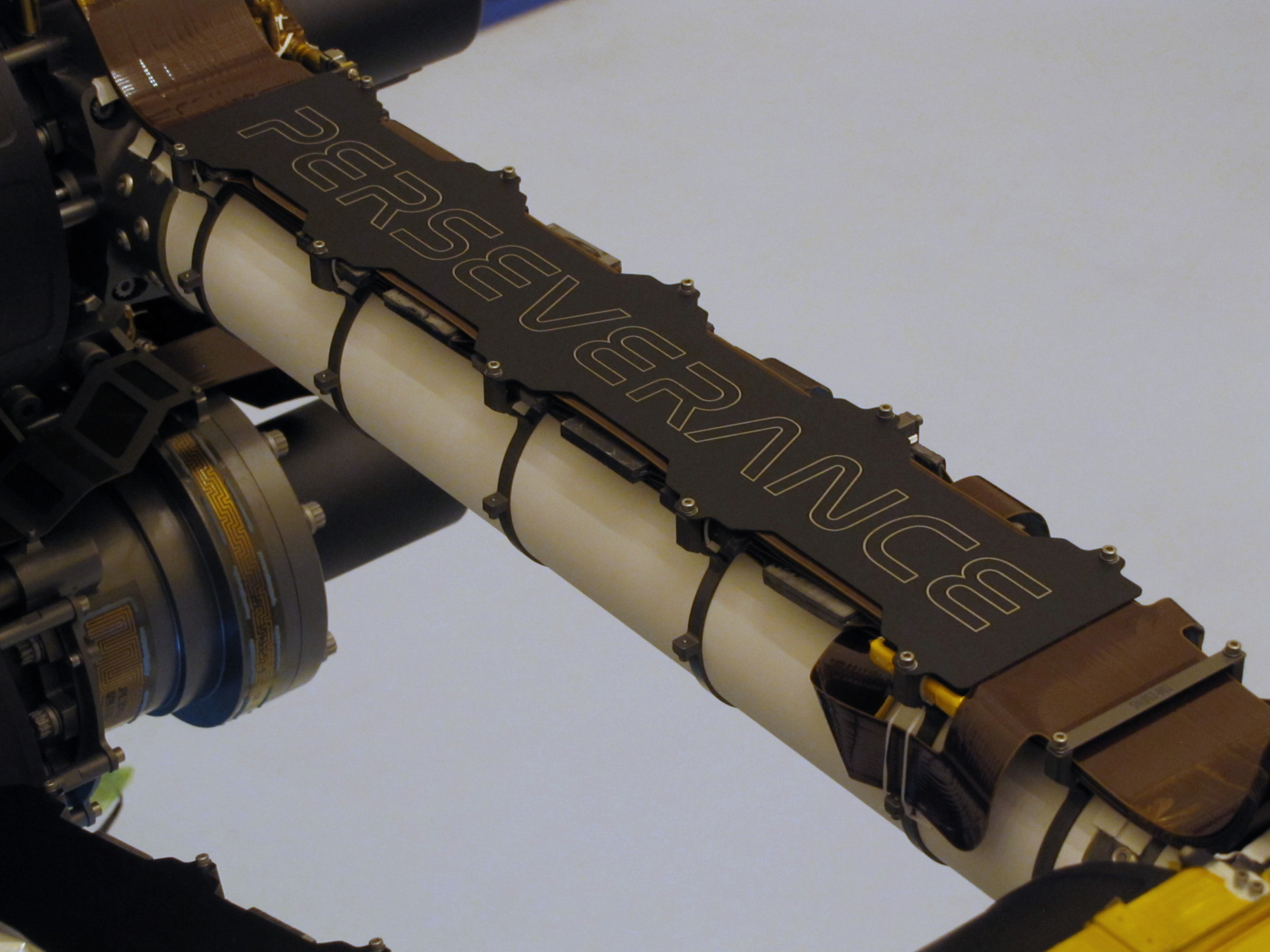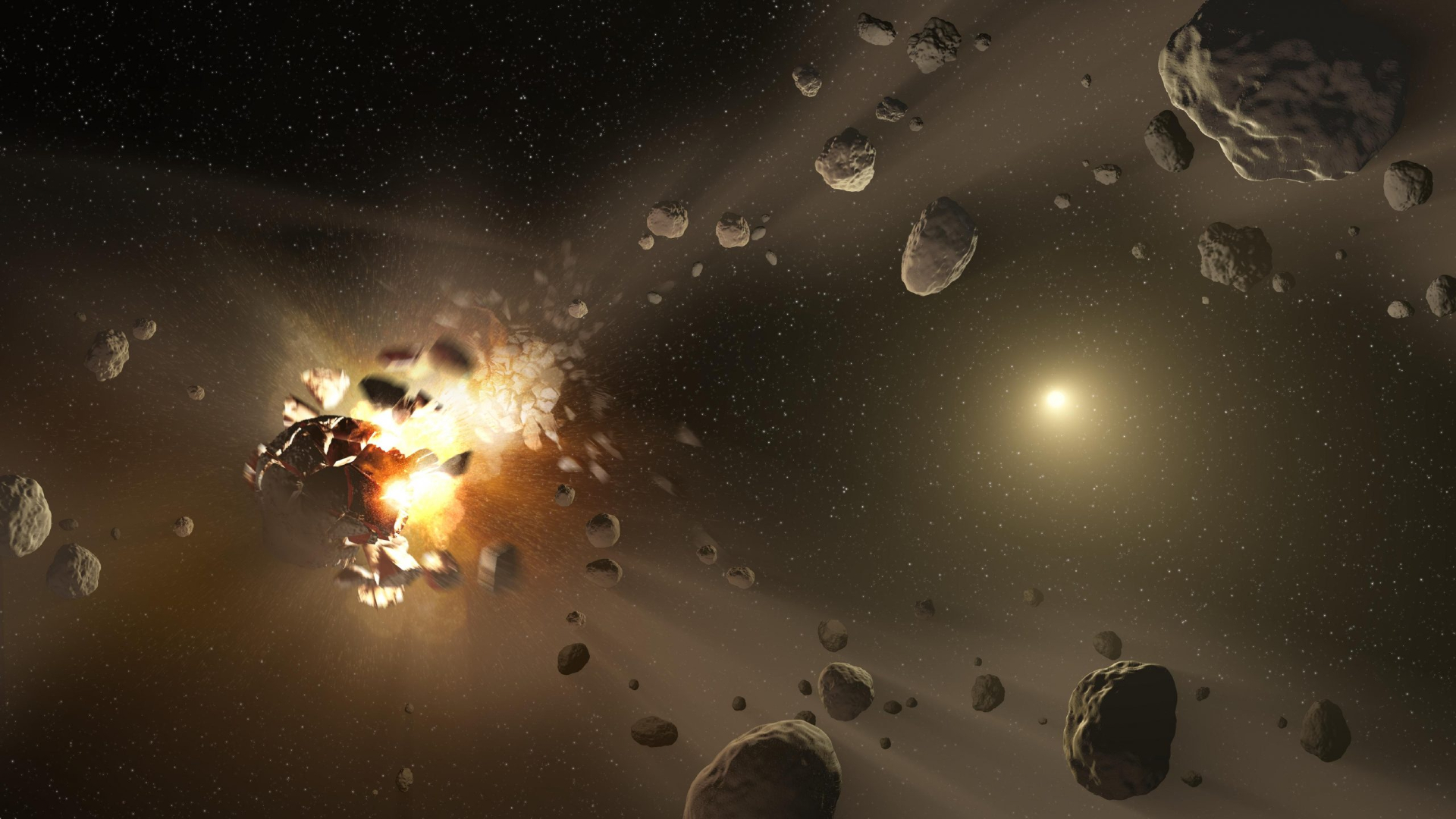What's in a name: Why NASA chose 'Perseverance' for its next Mars rover

NASA didn't name its next Mars rover Perseverance just because "Percy" is a cute nickname.
The new moniker, which NASA announced on Thursday (March 5), captures the spirit of space exploration remarkably well, said Thomas Zurbuchen, the associate administrator of the agency's Science Mission Directorate.
"Yes, it's curiosity that pulls us out there, but it's perseverance that does not let us give up," Zurbuchen said during a teleconference with reporters on Thursday, referencing the name of the NASA rover that has been exploring Mars' Gale Crater since August 2012. (The body of Perseverance, which is scheduled to launch this coming July, is based heavily on that of Curiosity.)
Related: NASA's Mars 2020 rover mission in pictures
Zurbuchen stressed that he has designed space-science instruments and therefore knows how difficult it is to get hardware to another planet.
"There's no exploration without perseverance," he said.
Zurbuchen's feelings carried a lot of weight. He picked the winning name, wrapping up a competition that kicked off in August 2019 and drew more than 28,000 essay submissions from K-12 students around the United States.
Breaking space news, the latest updates on rocket launches, skywatching events and more!
That initial pool was culled to 155 semifinalists and then pared further to nine finalists, from which Zurbuchen made the fateful selection. The winning essay was written by Alex Mather, a seventh grader from Lake Braddock Secondary School in Burke, Virginia, who said he fell in love with space science and exploration after attending Space Camp in Alabama in the summer of 2018.
Mather wasn't alone in proposing Perseverance. But his essay stood out, Lori Glaze, the director of NASA's Planetary Science Division, said during Thursday's teleconference.
Mather read that essay during NASA's name-unveiling ceremony Thursday, which the agency webcast live. It ends like this:
"We are a species of explorers, and we will meet many setbacks on the way to Mars. However, we can persevere. We — not as a nation but as humans — will not give up. The human race will always persevere into the future."
Perseverance, the centerpiece of the $2.5 billion Mars 2020 mission, is scheduled to land inside the Red Planet's 28-mile-wide (45 kilometers) Jezero Crater in February 2021. The car-size rover will hunt for signs of ancient Mars life using seven different science instruments and collect and cache dozens of samples for eventual return to Earth.
This pristine Mars material could land here as early as 2031, after which it will be analyzed by scientists in well-equipped labs around the world.
As Mather's essay implies, the mission is also designed to help pave the way for human exploration of Mars, which NASA hopes to achieve sometime in the 2030s. For example, Perseverance carries a ground-penetrating radar instrument that could identify deposits of subsurface water ice — a resource future Red Planet explorers would be keen to exploit. Also aboard the rover is an instrument that will generate oxygen from the thin, carbon dioxide-dominated Martian atmosphere. (There's a small helicopter scout, too, which could lead to further robotic exploration of Mars' skies down the road.)
Mather could end up following Perseverance to Mars one day; the 13-year-old said he'd like to be an astronaut when he grows up.
"But if I don't make it, since it's a very hard job to get, engineering at NASA would be a job I could have the same amount of fulfillment with," Mather said during Thursday's teleconference.
- How NASA's next Mars rover will hunt for alien life
- Life on Mars: Exploration & evidence
- Photos: Ancient Mars lake could have supported life
Mike Wall is the author of "Out There" (Grand Central Publishing, 2018; illustrated by Karl Tate), a book about the search for alien life. Follow him on Twitter @michaeldwall. Follow us on Twitter @Spacedotcom or Facebook.
OFFER: Save at least 56% with our latest magazine deal!
All About Space magazine takes you on an awe-inspiring journey through our solar system and beyond, from the amazing technology and spacecraft that enables humanity to venture into orbit, to the complexities of space science.

Michael Wall is a Senior Space Writer with Space.com and joined the team in 2010. He primarily covers exoplanets, spaceflight and military space, but has been known to dabble in the space art beat. His book about the search for alien life, "Out There," was published on Nov. 13, 2018. Before becoming a science writer, Michael worked as a herpetologist and wildlife biologist. He has a Ph.D. in evolutionary biology from the University of Sydney, Australia, a bachelor's degree from the University of Arizona, and a graduate certificate in science writing from the University of California, Santa Cruz. To find out what his latest project is, you can follow Michael on Twitter.

